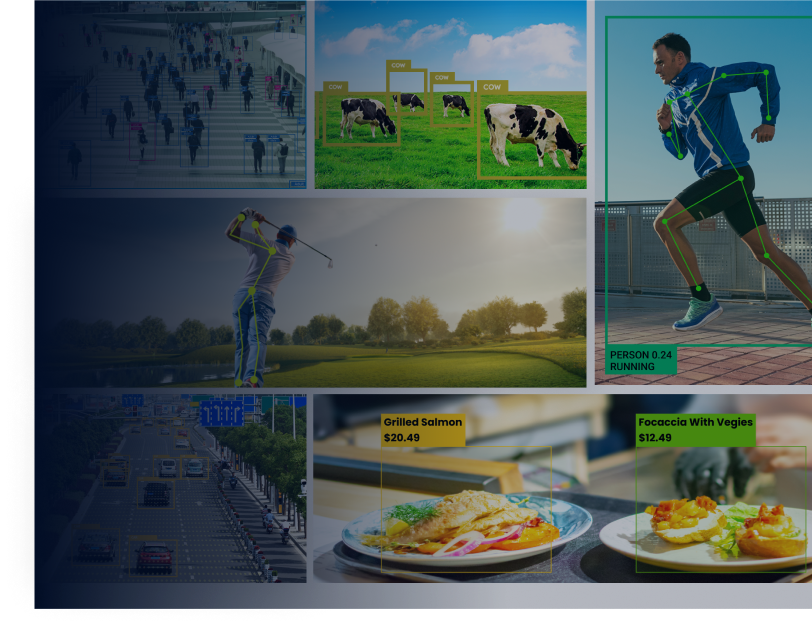Introduction:
Businesses worldwide are embracing ChatGPT integration to improve their operations by utilizing the possibilities of artificial intelligence. This blog explores ChatGPT, an advanced language model, and its substantial effects on different business areas.
ChatGPT is a potent AI tool that offers many advantages, from bettering customer service and optimizing processes to strengthening marketing plans and product development. Our goal is to equip businesses to be competitive in this quickly changing digital environment by educating readers about the limitless possibilities that ChatGPT offers.
Let’s examine how AI chatbots for customer engagement integration can revolutionize organizations of all sizes.
Understanding ChatGPT for Business:
What is ChatGPT and How Does It Work?
ChatGPT is an advanced language model driven by artificial intelligence developed by OpenAI. Leveraging deep learning techniques, ChatGPT for business is designed to comprehend and generate human-like responses to text inputs. The model is based on a vast neural network pre-trained on an extensive dataset, encompassing a diverse range of texts from the internet.
The process of how ChatGPT for business works can be simplified into two main steps: pre-training and fine-tuning. During pre-training, the model learns to predict the next word in a sentence based on the context it has seen before. This enables the model to understand grammar, semantics, and the intricacies of language.
After pre-training, the model goes through fine-tuning, tailored for particular tasks and domains. This fine-tuning procedure optimizes ChatGPT’s responses to match the intended result, whether addressing queries, producing inventive writing, or supporting various commercial applications.
When a user enters a question or prompt, ChatGPT analyzes the language, tokenizes it, and decodes the context to produce an appropriate and compelling response. Thanks to this impressive capability, ChatGPT is a solid and adaptable tool with practical applications in content generation, customer support, natural language interfaces, and more.
Applications of ChatGPT in Business:
Enhancing Customer Engagement and Support:
AI Chatbots: The Face of Customer Engagement
ChatGPT-enabled chatbots in the hospitality sector can tailor trip suggestions based on specific consumer preferences, creating distinctive client experiences.
One excellent example is an airline firm that integrated ChatGPT into the live chat support on its website. The AI chatbot handled frequent flyer questions, answered questions about bookings, and gave up-to-the-minute flight status updates. Customer involvement and satisfaction increased dramatically as a result.
Another practical application occurred in the retail industry, where a fashion business used ChatGPT chatbots to provide tailored style guidance. The bot built a lovely virtual shopping assistant by considering past purchases, fashion preferences, and body measurements, increasing consumer loyalty.
Driving Customer Satisfaction with Personalization
Customer satisfaction is improved through ChatGPT integration by providing tailored responses that address specific needs. With its superior language comprehension, ChatGPT can comprehend consumer inquiries and respond with pertinent responses, resulting in a more exciting and personalized experience.
Businesses can develop a stronger emotional bond with their customers, enhancing trust and loyalty, by customizing recommendations and solutions based on prior interactions and preferences.
Customer retention rates increase when individualized support is constantly offered, which improves the overall customer experience. Businesses may create enduring relationships with their customers using ChatGPT’s individualized responses, fostering brand loyalty and guaranteeing a competitive edge in the market.
Streamlining Workflows and Decision-Making:
Smoothing Internal Operations with ChatGPT
The integration of ChatGPT for business has a great deal of potential for reducing internal processes and improving business operations, which will increase overall effectiveness. Organizations may automate monotonous and time-consuming operations with ChatGPT’s AI-powered features, minimizing the need for manual work.
For instance, ChatGPT can speed up data processing and reduce errors when used for data-entering activities. The model’s capacity to produce content can also help create reports, proposals, and other papers, saving personnel significant time.
Additionally, ChatGPT can act as a virtual assistant by organizing meetings, reminding people of deadlines, and taking care of other administrative duties, freeing up human resources for more strategic duties. By embracing ChatGPT integration, businesses may increase productivity, streamline processes, and maintain an edge in today’s competitive and fast-paced environment.
Informed Decision-Making with AI Insights
A key component of data-driven decision-making is extracting useful patterns and trends from large datasets using AI insights from ChatGPT for business.
With these insights, businesses can improve strategies, make more informed decisions, and streamline operations. A retail chain used ChatGPT-generated insights to determine customer preferences and optimize inventory, which increased sales and decreased waste, as shown by real-world case studies.
Similarly, a marketing firm refined its targeting methods using AI insights to examine campaign data, leading to greater conversion rates. Utilizing ChatGPT’s AI insights enables businesses to make data-driven decisions that promote success and expansion.
Personalization for Improved User Experiences:
Tailoring Content and Recommendations
Personalized content using ChatGPT and product recommendations are made possible by ChatGPT, transforming user engagement and experience. ChatGPT for business creates content and makes product recommendations based on user behavior and preferences to meet specific needs. Longer interactions and greater user pleasure are encouraged by this personalization, which also makes the user experience more immersive and relevant.
As users feel appreciated and understood, real-time, AI-driven recommendations have been shown to increase conversion rates and client loyalty. Using ChatGPT, companies can create highly customized experiences that increase user engagement and foster long-lasting relationships.
Enhancing User Interactions through ChatGPT
Many companies use ChatGPT to personalize user interactions, altering the consumer experience. Using ChatGPT-driven chatbots by e-commerce behemoths to provide personalized product recommendations based on browsing history and preferences has increased user engagement and conversion rates.
Media organizations have used ChatGPT to develop personalized content feeds that distribute articles and videos relevant to users’ interests. Natural language processing (NLP) is essential in these implementations. The application of NLP enables chatbots to comprehend user inquiries in context and deliver pertinent, human-like responses.
As a result of their interactions with AI-driven decision-making with ChatGPT platforms, customers feel heard and appreciated, which promotes satisfaction and loyalty.
Ethical Considerations in ChatGPT Integration:
Transparency and Trust: AI Ethics in Business
The ethics of AI language models for business like ChatGPT center on data transparency and privacy. Due to the massive volumes of user data that these models collect, sensitive data must be protected with strict security measures.
Open communication with them is essential to ensure that consumers are informed about data usage and how AI affects their experiences. Businesses must be transparent about the potential biases and limitations of AI.
Ensuring Responsible AI Usage
Strict data protection regulations, a focus on openness, and routine auditing to spot and correct biases are all necessary to ensure ethical AI use in corporate communications.
To successfully navigate AI development and deployment, ethical principles are essential. Fairness, accountability, and explainability should all be incorporated into these rules to avoid discrimination or negative results. Cooperation between corporations, governments, and AI developers is vital to create a framework that encourages ethical AI use.
Adopting these guidelines guarantees that AI technology works for the better, enhancing human skills while protecting morality and societal well-being.
Future Outlook: The Evolution of ChatGPT in Business:
The Growing Role of AI-Language Models
Future developments of ChatGPT and AI language models look promising, and new trends are expected to transform business. More precise and contextually aware language models will be produced due to developments in model architecture, data accessibility, and training methods.
This entails increased decision-making, tailored content, and better consumer interactions. These language models can be used by businesses to increase efficiency, reinvent their goods and services, and achieve a competitive advantage.
However, safeguarding data privacy, correcting biases, and assuring ethical AI usage will all remain significant obstacles to overcome for a responsible and effective future integration of AI language models.
Embracing the AI Revolution
Businesses constantly struggle to stay ahead of the curve and remain competitive in their various industries in today’s environment of rapid change. Adopting and utilizing the potential of artificial intelligence (AI) is one of the crucial variables that can significantly impact their success.
Due to AI’s disruptive potential, organizations have never-before-seen opportunities to improve customer experiences, streamline operations, and discover fresh business opportunities.
Businesses must adopt a proactive stance in keeping up with the most recent AI trends, best practices, and ethical issues to exploit AI efficiently. This calls for investing in research and development, promoting an innovative culture, and engaging in ongoing learning.
By doing this, businesses may realize AI’s full potential and see how it transforms their bottom line.
Embracing AI with an open mentality allows organizations to adapt quickly to the rapidly evolving digital ecosystem. This mindset encourages experimentation, agility, and the willingness to explore new applications of AI across various business functions.
As a result, businesses can seize new opportunities, navigate challenges with resilience, and create a brighter and more prosperous future.
Conclusion:
Businesses can gain greatly from ChatGPT integration, particularly in education. It is a potent tool for developing tailored, interactive learning experiences for students that improve engagement and knowledge retention.
Using ChatGPT to automate grading, expedite administrative tasks, and provide immediate feedback, teachers can save time and resources. By enabling data-driven decision-making, individualized consumer interactions, and faster operations, embracing AI tools like ChatGPT helps businesses realize their full potential.
Investigating ChatGPT integration and other AI technologies is essential for corporate growth and success. Businesses may gain a competitive edge, optimize operations, and provide excellent customer experiences by staying current on AI developments and utilizing these tools.
Adopting AI is a revolutionary path that fosters innovation and equips companies to succeed in the fast-paced digital environment.










